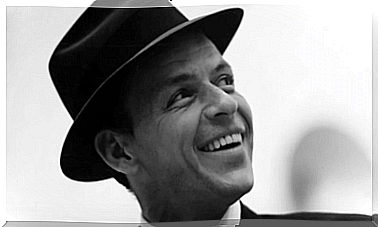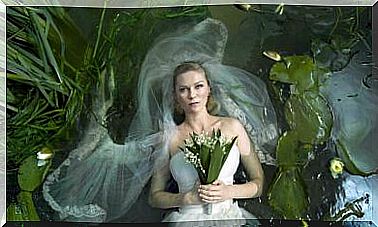The Absence Of Problems Is Not A Guarantee Of Happiness

The absence of problems is not an insurance of happiness, rather it is the willingness to make changes, tolerating the uncertainty that the derived fear can generate. Now, assuming this may not be easy. As Albert Camus said, people are obsessed with seeking happiness like someone trying to find the Holy Grail. However, wellness is not a summit or a goal, it is a daily exercise that requires new approaches and adapted strategies.
Since the psychologist Martin Seligman, from the University of Pennsylvania, highlighted the need to go beyond the pathological – to enhance optimal moods and thus favor vital dynamics – several decades have passed. It was in 1990 that positive psychology took hold, and since then that explosion of well-intentioned theories and advice has continued to grow.
Thousands of books on happiness are published each year. Universities offer hundreds of courses on this subject and, to this day, figures like Tal Ben-Shahar continue to emerge as true gurus in this field. Likewise, new areas such as neuroscience have also been added, where multiple experts tell us what happens in our brain when we are happy and what we should do to enhance this state.
All these streams, approaches and perspectives are as interesting as they are inspiring. However, there is a nuance that different voices stand out: we have turned the concept of happiness into a marketing product. Furthermore, we are “educating” the population on how to be happy, but at the same time, we also make it intolerant towards discomfort, sadness, anxiety or uncertainty.
Our immediate reality is not exactly easy. Sometimes, as much as we try to be happy, the context does not accompany. Therefore, we should still refocus the concept of happiness. Let’s see how.

Happiness is not the absence of problems, it is acting despite fear
Happiness is not the absence of problems. If so, it would be due to an exceptional and unusual event. Our environments are not aseptic, there are changes, there are unforeseen events, we interact almost every day and frictions, discrepancies and misunderstandings arise. No matter our status, age or where we live, problems always arise and no one is immune to what happens both around them and in their internal universe.
In this context, it should be noted that in recent years new voices have emerged in the academic world with a very clear purpose: to offer us another vision of happiness. Psychologists such as Jerome Wakefield (New York University) and Allan Horwitz (Rutgers) have written such interesting books as Loss of Sadness: How Psychiatry Transformed Normal Pain into Depressive Disorder. In this work, we are told that we are banishing realities such as sadness and frustration from our emotional repertoire as if the vital space we yearn for is outside of them.
By not recognizing them and including them in our speech, giving greater relevance to positive emotions, we are illiterate people emotionally. To this day, not everyone knows what to do with their stress and anxiety. Not everyone knows what causes that knot in the stomach, that paralyzing fear that sometimes prevents us from leaving the house. Handling adversity and those complex emotional states also mediates our chance to be happy.
Happiness is daring to act despite fear and uncertainty
At this point, I would like to rescue a definition of happiness that is as adequate as it is inspiring. Neuroscientists, psychologists, psychiatrists, economists and even Buddhist monks converge in it. It is about giving life meaning, having purpose and taking active behavior. It is having the disposition to grow and accept daily adversities and challenges. That would be, in essence, the real key.
Eduard Punset already said in his day that happiness is the absence of fear. This idea, misinterpreted, is somewhat perverse: the human being cannot stop being afraid, this emotion is inherent to who we are and, as such, it fulfills a function. Several, actually.
This would be an example: “ I may be afraid to change cities and start a new life, but I know I have to. Taking this step will allow me to progress; therefore, I decide to dare and I will do it despite my fears ”.
I am aware that problems may arise, but I feel capable of dealing with them
Happiness is not the absence of problems. In reality, it begins to acquire a space when we place ourselves above the challenges. Sonja Lyubomirsky, a professor of psychology at the University of California, is one of the great experts in banishing the myths about positive psychology and happiness. Thus, something that frequently points out to us is that well-being is not in achieving achievements, in conquering goals and, even less, in owning things.
The human being achieves a sense of balance and fulfillment when he feels good about himself. When we perceive ourselves as capable for what may come, when our self-esteem is strong and we handle fears, stress, worries, etc., everything flows and goes better.
Thus, understanding that life is not easy, that it will always leave notches and marks in more than one battle fought, is an immutable reality and, therefore, that we have to assume. It is a condition of the game that we cannot modify.
No one is immune to problems and twists and turns at the last minute. Therefore, let us accept these developments now and work on our personal growth, as well as those psychological strengths that will allow us to invest in our own well-being.










